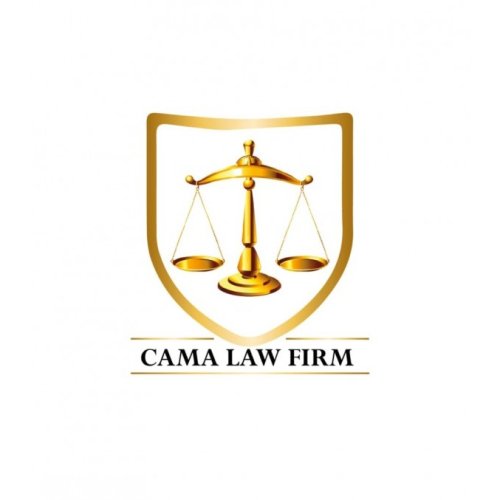Best Civil Rights Lawyers in Cameroon
Share your needs with us, get contacted by law firms.
Free. Takes 2 min.
Or refine your search by selecting a city:
List of the best lawyers in Cameroon
About Civil Rights Law in Cameroon
Civil rights in Cameroon encompass the basic rights and freedoms that belong to every individual in the country. These rights are designed to ensure the protection of individuals from discrimination and to guarantee equal treatment under the law. The Constitution of Cameroon, as well as various international treaties that Cameroon is a party to, provide a framework for the protection and promotion of civil rights. These rights include, among others, the right to life, freedom of expression, freedom of assembly, and the right to a fair trial.
Why You May Need a Lawyer
There are several situations where you might require legal assistance in civil rights matters in Cameroon. These situations include facing discrimination based on gender, ethnicity, or religion; experiencing violations of your freedom of expression or assembly; being denied due process in legal proceedings; or having your property rights infringed upon. Lawyers specializing in civil rights can help you understand your rights, navigate the legal system, and represent you in court if necessary.
Local Laws Overview
The legal framework for civil rights in Cameroon is influenced by both national and international laws. Key legislation includes the Cameroonian Constitution, which enshrines fundamental rights and freedoms, and various laws that address anti-discrimination and human rights. Cameroon is also a signatory to several international conventions, such as the African Charter on Human and Peoples' Rights and the International Covenant on Civil and Political Rights, which lay out additional protections for civil rights.
Frequently Asked Questions
What are my basic civil rights in Cameroon?
Your basic civil rights include the right to life, liberty, equality before the law, freedom of expression and assembly, and the right to property.
How are civil rights protected in Cameroon?
Civil rights are protected under the Constitution and through international agreements that Cameroon has ratified. Additionally, various national laws provide specific protections against discrimination and other rights abuses.
What can I do if my rights are violated?
If your rights are violated, you can file a complaint with the relevant authorities, seek mediation, or consult a lawyer to pursue legal action.
How do I know if I am experiencing discrimination?
Discrimination occurs when you are treated unfairly or unequally based on attributes such as race, gender, ethnic origin, or religion. Legal professionals can help you determine if your experience qualifies as discrimination under the law.
Can I sue for a civil rights violation?
Yes, you can sue for a civil rights violation in Cameroon, and a lawyer can help you build your case and represent you in court.
What is the role of NGOs in protecting civil rights?
Non-Governmental Organizations (NGOs) often work to promote and protect civil rights by raising awareness, providing legal assistance, and advocating for policy changes.
Are there freedom of speech protections in Cameroon?
The Constitution provides for freedom of speech and press, although there are restrictions in place. Any limitations must be lawful and proportional.
What should I expect when meeting with a civil rights lawyer?
Expect to discuss the details of your situation candidly. The lawyer will assess the merits of your case and outline possible legal strategies.
What does the legal process look like for civil rights cases?
The process typically involves documenting the violation, filing a complaint, and potentially going to trial if the issue cannot be resolved through mediation or settlement.
What remedies are available for civil rights violations?
Remedies may include compensation for damages, policy changes, and injunctions to prevent future violations.
Additional Resources
Individuals can access resources such as the National Commission on Human Rights and Freedoms, local legal aid organizations, and international human rights bodies. These resources can provide legal advice, assistance, and additional information on protecting your civil rights.
Next Steps
If you need legal assistance regarding a civil rights issue, it's important to start by documenting any incidents of rights violations and collecting evidence. Next, reach out to a qualified lawyer specializing in civil rights. Consider contacting organizations that focus on human rights protections for guidance and support. Additionally, familiarize yourself with both local laws and your rights under international agreements to better understand your position.
Lawzana helps you find the best lawyers and law firms in Cameroon through a curated and pre-screened list of qualified legal professionals. Our platform offers rankings and detailed profiles of attorneys and law firms, allowing you to compare based on practice areas, including Civil Rights, experience, and client feedback.
Each profile includes a description of the firm's areas of practice, client reviews, team members and partners, year of establishment, spoken languages, office locations, contact information, social media presence, and any published articles or resources. Most firms on our platform speak English and are experienced in both local and international legal matters.
Get a quote from top-rated law firms in Cameroon — quickly, securely, and without unnecessary hassle.
Disclaimer:
The information provided on this page is for general informational purposes only and does not constitute legal advice. While we strive to ensure the accuracy and relevance of the content, legal information may change over time, and interpretations of the law can vary. You should always consult with a qualified legal professional for advice specific to your situation.
We disclaim all liability for actions taken or not taken based on the content of this page. If you believe any information is incorrect or outdated, please contact us, and we will review and update it where appropriate.
Browse civil rights law firms by city in Cameroon
Refine your search by selecting a city.









